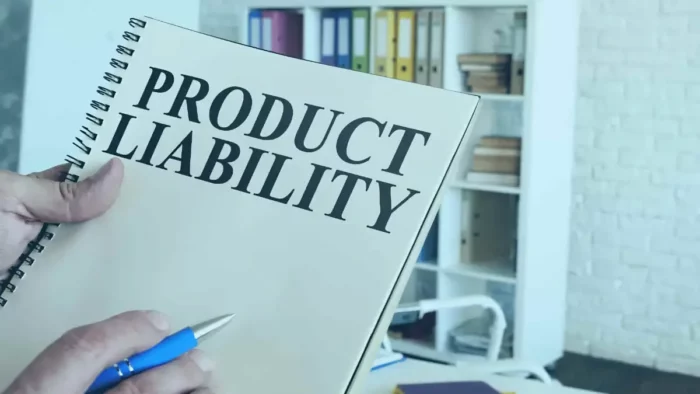Numerous misconceptions often cloud individuals’ understanding of their legal rights and options in the realm of will disputes and estate litigation. These common misbeliefs can have significant implications on individuals involved in such cases, both emotionally and financially. Hence, it becomes imperative to unveil these prevailing myths and shed light on the truth behind will disputes and estate litigation.
Through this article, with some tips from Empower Wills and Estate Lawyers, we aim to comprehensively analyze the most prevalent misconceptions surrounding these legal matters while offering accurate information to help demystify any uncertainties individuals may have regarding their rights in such situations.
Myth 1: “The Will is the Final Word: Dispelling the Notion of Incontestability”
Despite popular belief, the notion that a will is invincible and cannot be challenged is a fallacy. This myth often leads individuals to believe that once a will has been written, its instructions are binding and cannot be disputed. However, in reality, wills can face challenges in court if there are suspicions of fraud, undue influence, or a lack of mental capacity during their creation. The legal system allows for disputes over wills to ensure fairness and protect the assets and interests of all parties involved.
Individuals must understand that contesting a will does not necessarily mean disrespecting or challenging the deceased’s wishes. Instead, it ensures that justice prevails by allowing thorough investigations into any potential irregularities surrounding the document’s creation. By dispelling this misconception about incontestable wills, people involved in estate litigation can better understand their rights and options within the legal framework when faced with questionable circumstances surrounding a testamentary document.
Myth 2: “Only Family Members Can Challenge a Will: Examining the Scope of Standing”
One prevalent myth surrounding will disputes is the belief that only family members have the right to challenge a will. However, this notion of exclusivity is misleading. In reality, the scope of standing goes beyond just family members. It extends to other individuals who can demonstrate a legal interest in the outcome of a will dispute or estate litigation case. This can include beneficiaries named in previous versions of the will, creditors with outstanding debts owed by the deceased, charities named as beneficiaries, or even close friends who were financially dependent on the deceased.
Understanding this broader scope can be crucial for those seeking to contest a will and assert their rights. It allows for greater inclusiveness and ensures that all parties with legitimate claims can participate in legal proceedings related to inheritance matters. By debunking this common misconception about limited standing rights based solely on familial relations, individuals embroiled in such disputes can make more informed decisions and pursue appropriate legal action if necessary.
In conclusion, it is important to dispel misconceptions regarding who has the right to challenge a will or engage in estate litigation. While family members often play a significant role, they do not hold exclusive rights when it comes to contesting a will. Recognizing that other individuals with valid interests may also have standing encourages fairness and transparency throughout these complex legal processes.

Myth 3: “Probate Court is the Only Forum for Will Disputes: Understanding Alternative Dispute Resolution”
One prevalent myth surrounding will disputes is the belief that the probate court is the only forum for resolving such conflicts. However, this is not entirely accurate. While it may be common for will disputes to be brought before a probate court, alternative dispute resolution (ADR) methods can also be employed. ADR includes processes such as mediation and arbitration, which offer parties an opportunity to settle their differences outside of the courtroom.
Engaging in ADR can provide various benefits in will disputes, including cost savings and faster resolution times compared to going through traditional litigation. Additionally, ADR allows for more flexible solutions tailored to the specific needs and interests of those involved. It offers a less adversarial approach and promotes communication between parties to reach a mutually agreeable outcome.
It is crucial for individuals embroiled in will disputes or estate litigation to understand that they have options beyond probate court. Seeking legal advice from professionals experienced in ADR can help navigate these alternatives effectively and increase the chances of finding a satisfactory resolution while minimizing potential emotional and financial strain on all parties involved.
Myth 4: “Estate Litigation is Always Lengthy and Expensive: Debunking the Costly Misconception”
Contrary to popular belief, estate litigation does not always have to be an arduous and costly process. While it is true that some cases may drag on for extended periods of time and rack up substantial legal fees, this does not hold true for every situation. Factors such as the case’s complexity, cooperation between parties involved, and the skill of legal representation can significantly impact the duration and cost of estate litigation.
A swift resolution can be achieved if all parties involved are willing to negotiate and find common ground outside of court. This alternative dispute resolution approach can significantly reduce the timeline and expenses associated with estate disputes. Moreover, by engaging experienced lawyers specializing in mediation or collaborative law methods, individuals can explore non-confrontational avenues that prioritize amicable settlements over prolonged courtroom battles. It is imperative to debunk this misconception, as it promotes unnecessary fear about estate disputes when viable solutions exist, saving considerable time and money for those involved.
Conclusion
Overall, it is essential to acknowledge that estate litigation need not always be lengthy and expensive. The prevailing misconception fails to consider alternative approaches like mediation or collaboration, emphasizing speedy resolutions at reduced costs. Individuals can better protect their rights without experiencing the excessive emotional distress or financial strain frequently associated with contested estates by being aware of these options and seeking advice from knowledgeable professionals in navigating will disputes.





